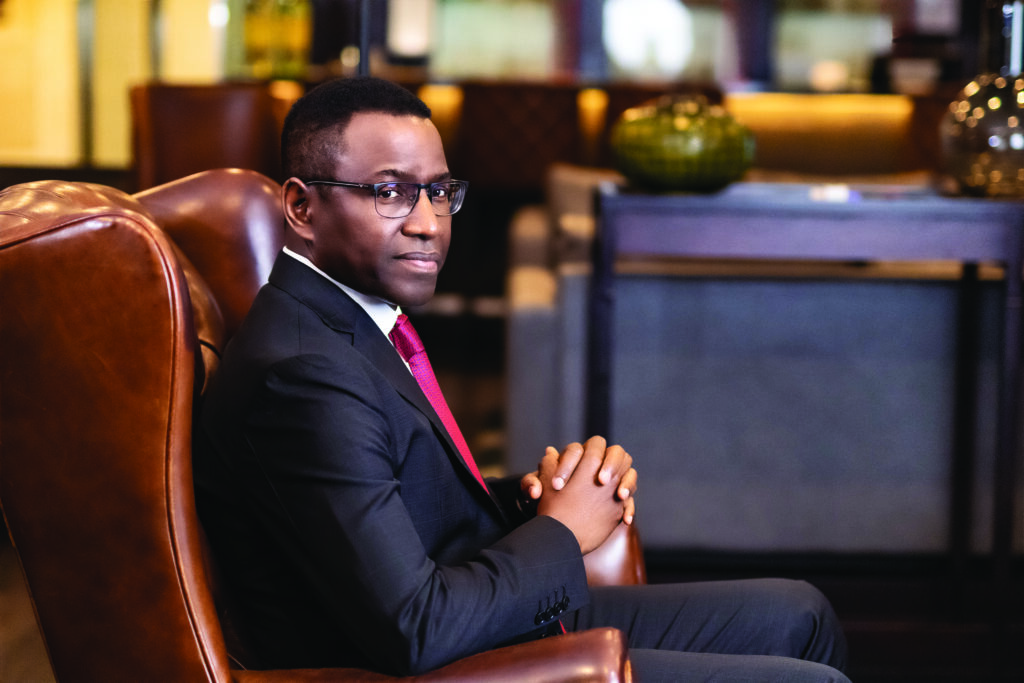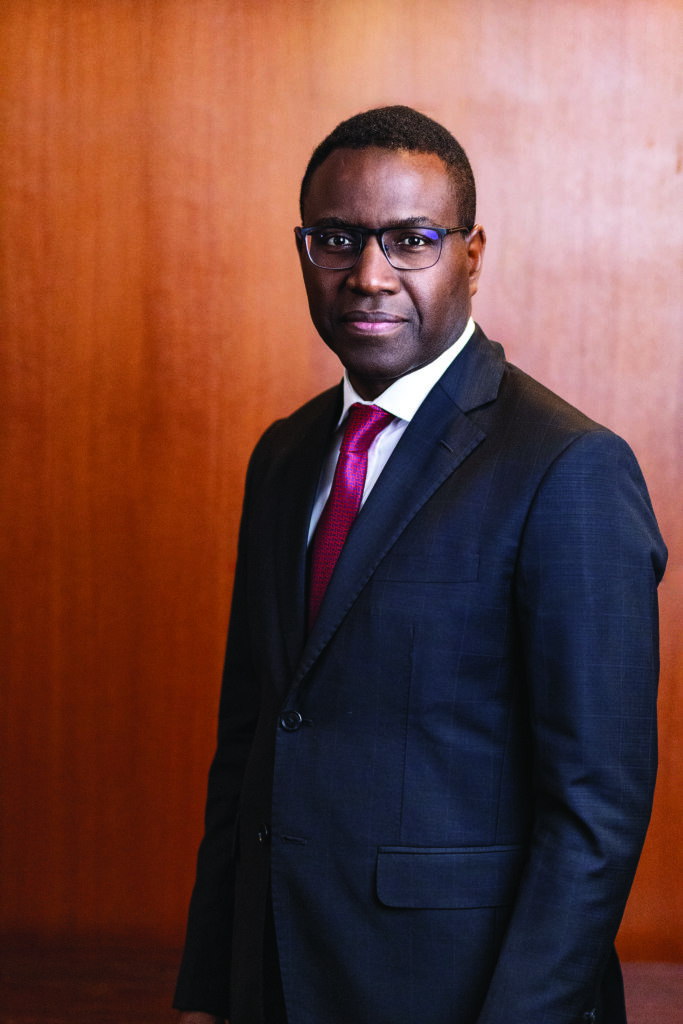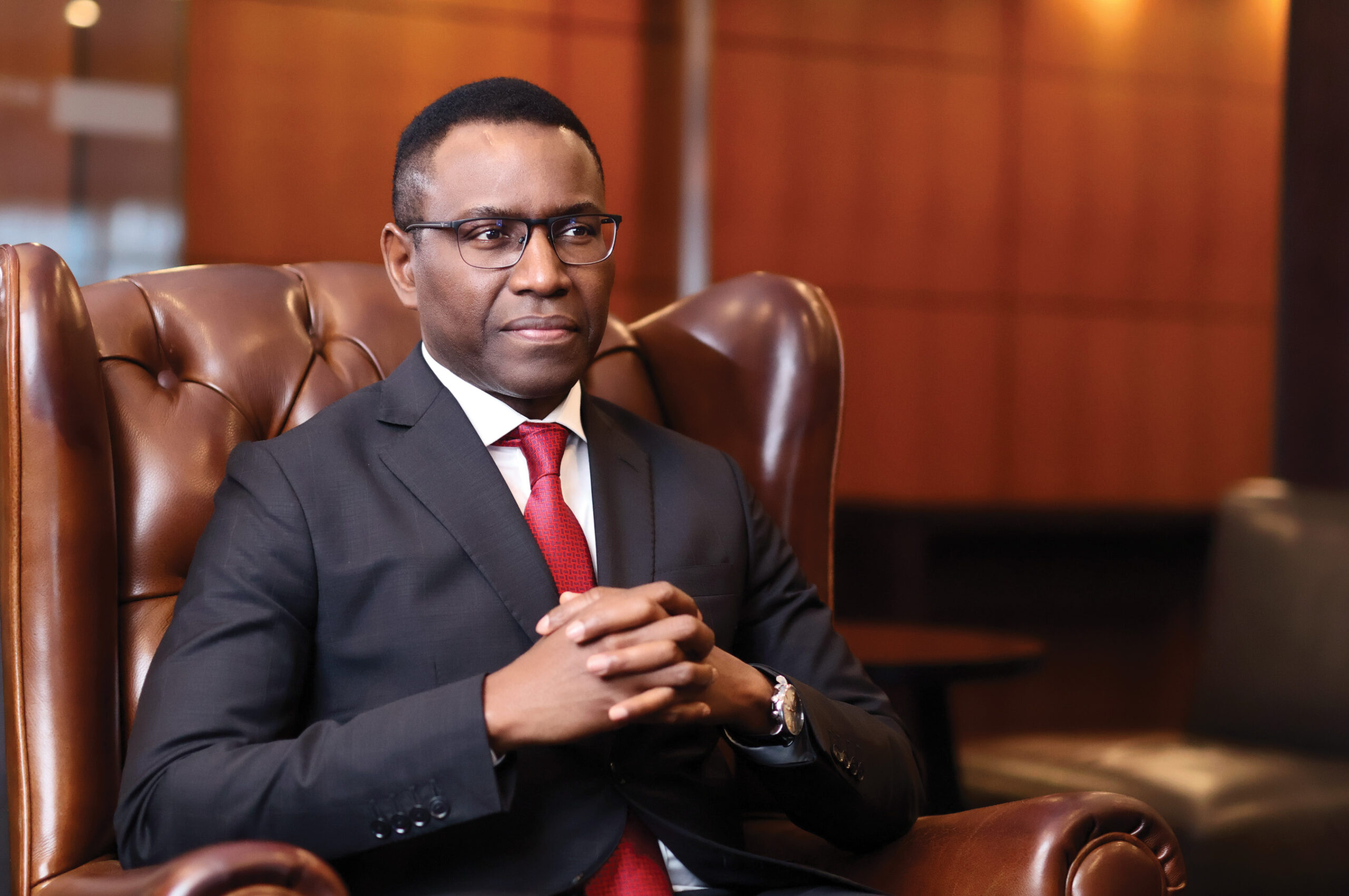In the running for one of the biggest jobs on the continent, Senegal’s Amadou Hott is no stranger to public life. As a former Minister of Economy, Planning, and Cooperation in his home country, former Vice President of the African Development Bank (AfDB), and Corporate CEO, he hopes to use all of those experiences to maximize development and impact on the continent. Excerpts from an interview with FORBES AFRICA in March:
Q. Having been a part of the AfDB, there is continuity attached to the President’s role you’re seeking. How has this journey been?
A. These are exciting times for Africa, and I feel it’s really the right time for me to step in, and following my 25 years of leadership experience across continents, in both public and private sectors, with the multilateral development banks, and having actually started and managed Senegal’s sovereign wealth fund–which is now one of the most credible sovereign funds on the continent–and having been in investment banking, mobilizing resources and capital for both the public and the private sectors, I feel I’m well-equipped now to really serve by leading this bank and supporting Africa, especially in this environment, where the needs are bigger than ever before. The young people are impatient to see their lives transformed. But, also at a time when geopolitics [has seen] the aid budget globally going down, we need a bank that is very innovative, that can really do more with less, but leverage and have a bigger impact than before…I am confident that once elected, I will be able to take the AfDB to the next level. The bank has done greatly for the last 60 years; each president has done something unique. Specifically, during the last 10 years [under President Akinwumi Adesina], we’ve seen big innovations, projects and initiatives. And I think we can build on that, to really accelerate whatever we are doing for Africa’s development.

To take a step back and reflect on your own personal trajectory, growing up in Dakar, from a young age, what were your influences?
A. I was born in a fairly large family, with several brothers and sisters, in the suburbs of Dakar, in difficult and relatively tough neighborhoods. My father was a truck driver, but he was keen to see us study. He would push us when we came back home from school and say, ‘you have to read everything you studied today’. We studied hard.
Loading...
I received a scholarship from the government of Senegal, and went on to study in Strasbourg, and then in Paris. As a child, I loved mathematics. We had a blackboard in our room, where my siblings and I, and even friends from the neighborhood, would learn math.
I wanted to study overseas and become a professor. I wanted to do a PhD but I became a banker by accident. During the summer of 1995, I was playing football in Paris when I met a banker, played football with him and at the end of the game in the evening, I told him my background and he said ‘you should get into banking, you can teach later if you want but these roles in banking are exciting where you can use math and finance’, and I did.
Q. What charted your rise to becoming a public servant? Is this something you always wanted to do?
A. I had left to the investment banking world, and was called into government to start from scratch a sovereign wealth fund to invest in our economy–not a sovereign wealth fund that would invest overseas, but one that would leverage small money and build the projects, develop them, and make them bankable, then attract both domestic and international capital. I started with hiring a very good team and doing the first solar deals, the independent power producers, where we produce solar power and sell it to the utility, which many countries are doing now in Africa, but we started early on solar. That was in 2015 and we developed the project, supporting a local developer, then attracting an international developer…
Q. If you become the president of the AfDB, how will you navigate complex regional dynamics, and still stay a neutral and impartial continental institution?
A. My background and experience have enabled me to be able to navigate complex situations, and adapt myself to cultures globally. I haven’t had any issues making sure that I’m adapting myself also to the continent’s cultural, political, and economic diversity. This requires us to understand countries, but also regional dynamics. I think that is very critical, and I’m prepared and equipped to do that better than anyone else. Because, from 2004, even if I was outside Africa, all my interventions up to now have been focused on the continent. So, while I was a banker in London, at ABN AMRO, for example, I was focused on the continent. While in Dubai, I was a banker focused on the continent. In Nigeria too. And, then, at the AfDB as a vice president, working with both the private and public sector, increasing the investment with the private sector by 150% on the energy side within just two and a half years… all of that means you need to understand local cultures; you can manage staff in the most impactful way.

Q. How do you view the African diaspora? People say Africa is going to the rest of the world, but it’s actually the world catching up with what Africa has in terms of talent and natural resources…
A. First of all, from the outside, in particular, within our diaspora, people always want to come back to Africa if they find the right opportunity, whether as entrepreneurs or working for an international organization or multinational, people know that the future is Africa. Within 10 years, we’ll have 500 million people aged between 15 and 35, and we know the natural resources the continent has. Some of them are very strategic for energy transition, including the critical mineral resources Africa has. In this new era, everyone would want to have a piece of that, but Africa needs to make sure also that its interests are defended, that it is transforming its natural resources as much as possible. And that it’s not just exporting raw materials. People talk about it, but I think it’s the time to do it. If you do not have the right energy systems, the right business environment, there is no way we can add value to our natural resources on the ground. Because you need energy, you need to ask for capital, you need to do your reforms and have the best business environment possible, such as what countries in Southeast Asia did in the 1960s and 1970s. You do the best reforms, you create the conditions and the people in our own continent will feel more comfortable to invest at home, and then you also attract international investors and FDIs.
Q. As President, how would you elevate the discussion on infrastructure development?
A. It’s critical to have the right energy systems, to have affordable, reliable, as-clean-as-possible energy, in particular, electricity, and also focus on the system that will help us industrialize. This is critical, needing a lot of resources and reforms. The AfDB has launched a new initiative with the World Bank, called Mission 300, with the aim to provide access to electricity to 300 million people [in sub-Saharan Africa by 2030]. As president, I will focus on that and make it happen over the next five years. But then, you need the transport infrastructure, the digital infrastructure. There is no way the African Continental Free Trade Area agreement will become a reality without the connectivity, the road corridors, the rails, and the bank needs now to mobilize both public and private resources, with a big shift towards private sector mobilization. That’s very critical for the future, because we also want to create jobs, and jobs are created by private sector investment; not only the public sector.
Q. How are you going to enable the entrepreneurial ecosystem for these young people?
A. I want to stress the importance of education and enhancing the skills of our young people to make sure they are ready for the economic opportunities our continent will provide… Number one, I would rather train almost everybody and have most of them stay on the continent to help build the continent… Number two, we cannot provide economic opportunities to everybody via the job market. Some of them will be entrepreneurs and self-employed innovators who will be creating jobs for others. And you need to support them with technical assistance, but also grant money or venture capital equity. The bank has what we call the youth entrepreneurship investment program and has already developed it in a few countries. We have got to make sure that becomes a reality, and adapt it to our countries’ institutional frameworks. The goal is to provide technical assistance and equity investment guarantees pretty early, so that the banking sector can be ready to finance those innovators. And then also work with the government so that the rules, regulations and framework for supporting startups are in place. In some countries, they are, but in some countries, we don’t have them yet. And I think the bank can engage in active dialogue with those countries so that while you’re putting in place the youth entrepreneurship investment banks, we are also fostering the right reforms and regulations. For me, that is extremely important.
Q. What are your plans for prioritizing climate change? What is on your agenda?
A. The bank has done very well in climate finance, and during my vice presidency. In 2017, 100% of the bank’s investment in electricity production was in renewable energy. For me, maximizing renewable energy is very important because the continent has the resources and you cannot easily export renewable energy, but you can produce gas or other technologies and export, instead of consuming it yourselves. But your systems cannot have only renewable energy. You have got to have a base load that allows you to maximize renewable energy. You can do storage as well, but all of that has limitations, so the system has to have the right energy mix to achieve two goals mainly, to make sure that we have access to affordable, reliable and the cleanest-possible energy; and then industrialize, and you cannot industrialize only with renewable energy. It’s still expensive to try to industrialize with say, green hydrogen. The day it becomes cheaper, Africa will be unstoppable in terms of having green industrialization. But it’s a process, and we cannot wait for that to happen. That’s why it’s very important to use gas, which is stable energy, which is also the least polluting of all the non-renewable energy technologies, and for me, industrialization, transforming our natural resources into something that helps us create jobs and increase the wealth for ourselves, is very important.
Q. A corporate CEO, a public servant, a DFI leader… which role have you enjoyed the most?
A. To tell you the truth, I have enjoyed all of them–as a banking CEO, a sovereign wealth fund CEO, as the vice president of the AfDB, and it has also been equally exciting as a minister. As the president of the bank, I would use those key experiences to make sure we are maximizing development and impact on the continent and that the bank is seen as the most friendly and most-efficient bank with the private sector and with the government. This is my goal, transforming the private sector business–if I can use those words–of the bank.
Q. You have worked with Africa’s richest man, Aliko Dangote. What have your learnings been with the continent’s high-net-worth individuals?
A. I worked with Aliko and also with Tony Elumelu, another billionaire. Especially in Nigeria, what they all have in common is hard work and the boldness. If you work with them, you have got to work extremely hard. And of course, I also worked with Akinwumi Adesina, the president of the AfDB, very closely; these are extremely hard-working and driven people. If you work with them, you have got to do the same, otherwise, you’ll be left behind.
Q. One last question: if you win and go on to become President, are you going to continue to find time to play football?
A. (Laughs) Why not? Maybe I will organize a game or championship… and every year, we play football and then cooperate more and work more together. I haven’t played football over the last three months, but then, I have been walking and running. And even when I travel, I try to jog in the city for 30 minutes. When I am at home, my two daughters, aged 22 and 17, and my son, aged 12, sometimes organize football games with their friends, and they invite me and I run with them. Sometimes, they’re surprised!
Loading...
